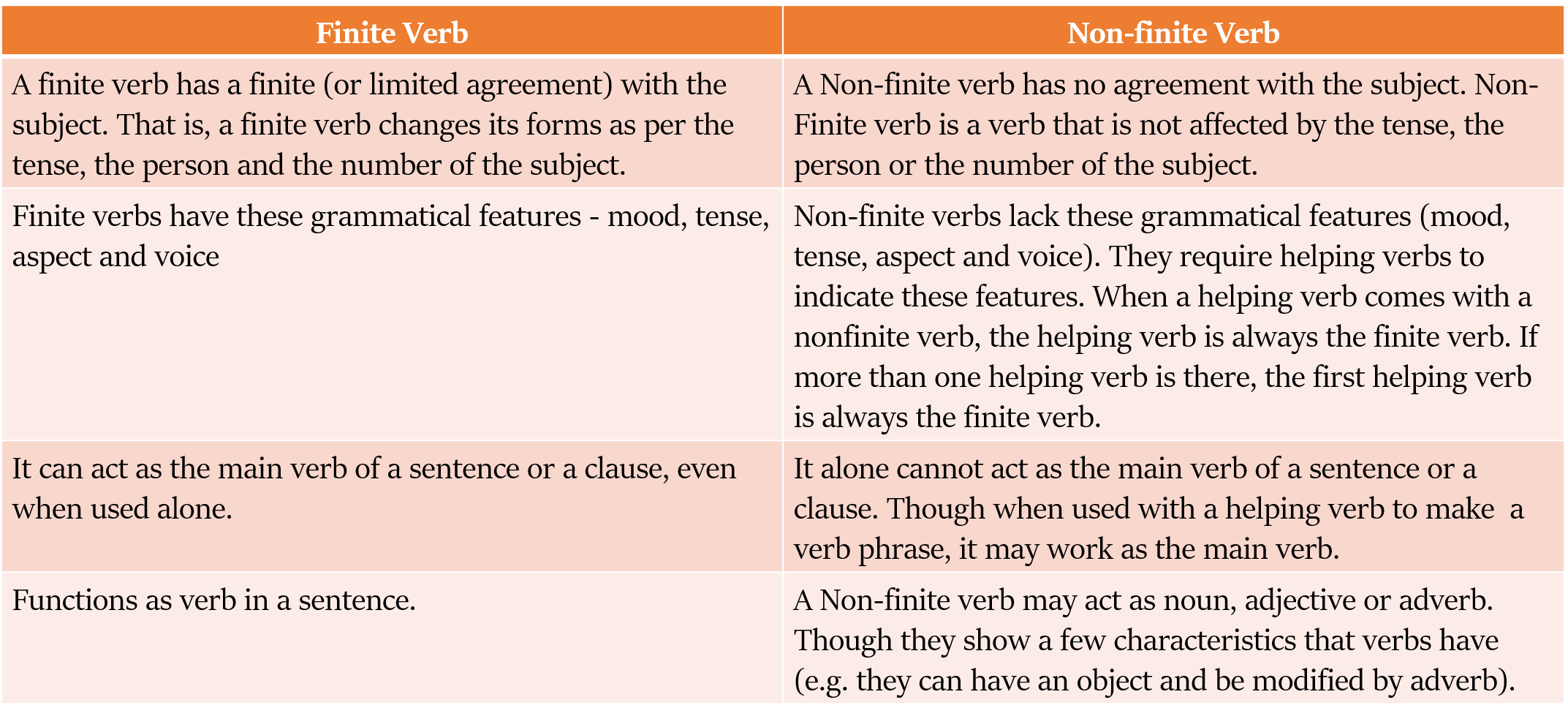Finite Vs. Non-Finite Verbs
What are Finite and Non-Finite Verbs?
Finite verb changes its forms as per the tense, the person and the number of the subject, but non-finite verbs do not.
In the following sentences, ‘like’ is a finite verb and ‘reading’ is a non-finite verb.
He likes reading books.
He liked reading books. (Finite verb changes with the tense of the subject)
I like reading books. (Finite verb changes with the person of the subject)
They like reading books. (Finite verb changes with the number of the subject)
In the following sentences, ‘refuse’ is a finite verb and ‘to obey’ is a non-finite verb.
He refuses to obey the instructions.
He refused to obey the instructions. (Finite verb changes with the tense of the subject)
I refuse to obey the instructions. (Finite verb changes with the person of the subject)
They refuse to obey the instructions. (Finite verb changes with the number of the subject)
Types of Non-Finite Verbs
There are three types of Non-Finite Verbs:
- Infinitive
- Gerund
- Participle
We will study all these three in separate articles in much more detail. But here, let us understand their basic properties and differences.
Properties of Non-Finite Verbs
Property 1
Finite verbs can act as the main verb of a sentence or a clause, even when used alone.
Lionel Messi plays football for Barcelona. (plays – finite verb as main verb)
Non-finite verbs alone cannot act as the main verb of a sentence or a clause. Though when used with a helping verb to make a verb phrase, a non-finite verb may work as the main verb.
Lionel Messi is playing football. (playing – non-finite verb as main verb; is – finite verb as helping verb)
The plan has been examined. (examined – non-finite verb as main verb; been – non-finite verb as helping verb; has – finite verb as helping verb)
Property 2
A Non-finite verb may act as noun, adjective or adverb.
Though Non-finite verbs show a few characteristics that verbs have (e.g. they can have an object and be modified by adverb) and some of them may even be part of verb phrases and even function as main verb in a sentence.
But they can function as other parts of speech too.
As a noun:
Swimming is a very good exercise.As an adjective:
The barking dog is hungry.As an adverb:
He went to Harvard to study.
Property 3
Certain finite and non-finite forms of a given verb are often identical.
They cry a lot. (cry - finite verb)
They will cry a lot. (cry - non-finite infinitive)
Matthew tried to help. (tried - finite verb)
Matthew has tried to help. (tried - non-finite participle)
Now, let us summarize their properties.


Extra Books and Tools
If you prefer to learn via books, or want some good English Grammar books for reference purposes, you may read this article which enlists some of the books recommended by us.